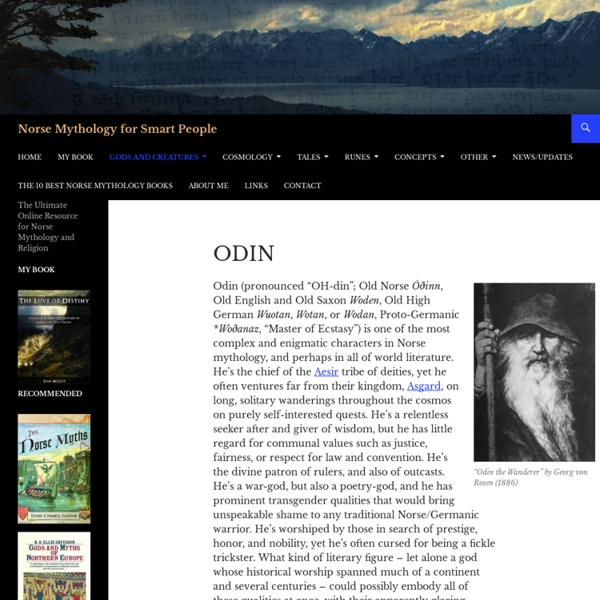Odin

Internet Sacred Text Archive Home
Norse Mythology
Odin's Discovery of the Runes
The Norse god Odin is a relentless seeker after knowledge and wisdom, and is willing to sacrifice almost anything for this pursuit. The most outstanding feature of his appearance, his one eye, attests to this; he sacrificed his other eye for more wisdom. The tale of how he discovered the runes is another example of his unquenchable thirst for understanding the mysteries of life, not to mention his unstoppable will. The runes are the written letters that were used by the Norse and other Germanic peoples before the adoption of the Latin alphabet in the later Middle Ages. Unlike the Latin alphabet, which is an essentially utilitarian script, the runes are symbols of some of the most powerful forces in the cosmos. Odin’s Discovery of the Runes At the center of the Norse cosmos stands the great tree Yggdrasil. Yggdrasil grows out of the Well of Urd, a pool whose fathomless depths hold many of the most powerful forces and beings in the cosmos. “Sacrificing Myself to Myself” References:
Related:
Related:



